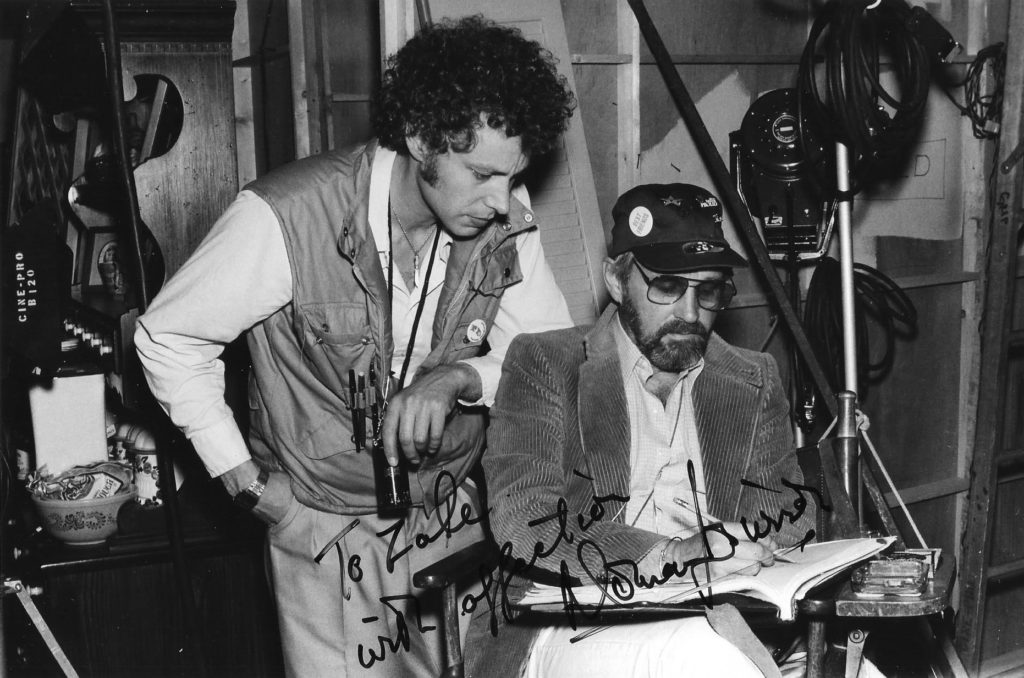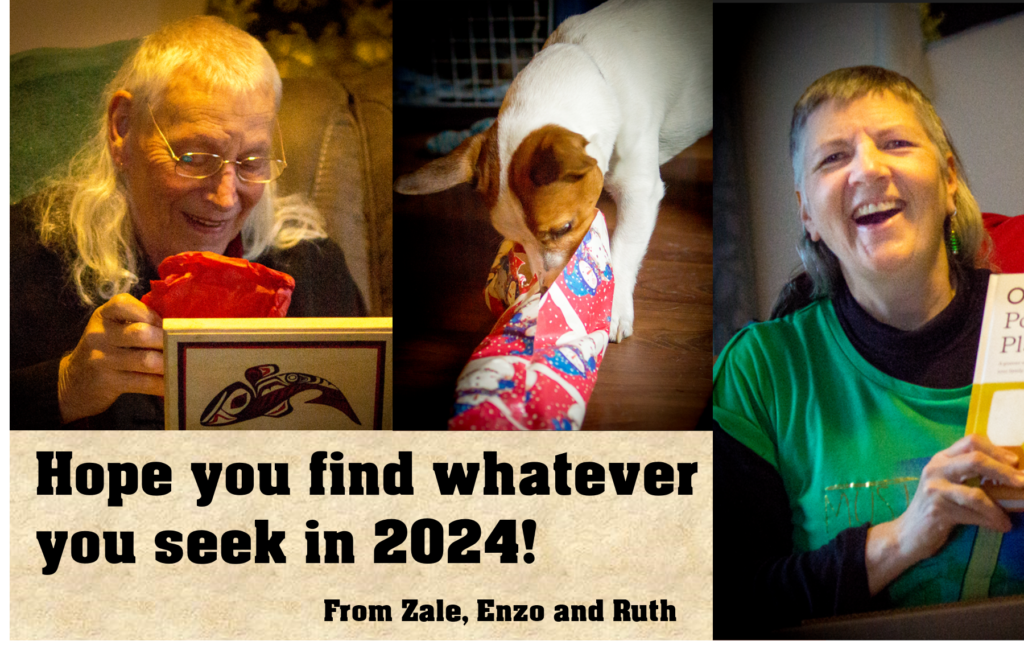But what a legacy he leaves behind. Norman directed a lot of fluff and schlock, starting with his breakthrough journeyman work on Pillow Talk with Rock Hudson and Doris Day as he moved from directing Canadian television to Hollywood in 1959. By the time I met him in 1982 he had a filmography full of important classics – “Fiddler on the Roof”, “Jesus Christ Super Star”, “Moon struck” and “In the Heat of the Night” to name just a few. His eclectic list of movie titles, with romantic comedy scattered in to social commentary, received 46 Academy Award nominations and won 12 Oscars.

A very much younger Zale Dalen with Norman on the set of “Best Friends”, staring Burt Reynolds and Goldie Hawn, romantic comedy fluff at its finest. In this photograph he’s showing me the difference between planning a television shoot and planning a feature film. According to Norman, what I was doing was television – laying out camera positions and blocking for the actors. A feature film director works in images, story boards, and planned transitions. I’m afraid I could never catch on to this approach. The images were in my head and the planning went from my head straight into the viewfinder thence into the camera. But sometimes I would adopt a combination derived from Norman’s kind lesson, but usually my planning involved camera positions and blocking, with sometimes lens notations thrown in.
Norman was very kind to me. I don’t think he was please when I told him I was leaving before his shoot was finished. I had to get back to Toronto to direct an episode of “For the Record” an anthology drama series for CBC television, an opportunity I wasn’t about to pass up, not even to sit at the feet of the master.
Walking the beach at Malabu, just outside Norman’s home there, he told me about his deal with the major for “Jesus Christ Superstar”. He’d seen the stage version in London and purchased the rights to make the movie, but he wanted a gross deal. That would mean that he got a percentage of the returns from first dollar, before the studio subtracted their expenses and worked their accountant magic on the returns, famously charging every production for every pencil the studio used. A net returns deal meant that the director and the backers wouldn’t see a penny, even if the film made millions at the box office. But there was no way the studio would agree to a gross deal for above the line participants. It just wasn’t going to happen. At that time, however, the studio considered returns from record sales to be small change, not worth fighting over. So they compromised by giving Norman Jewison a gross deal on the record sales.
I had that album. So did many of my friends. A gross deal on the sale of “Jesus Christ Superstar” had to be worth millions. That alone made Norman a happy, and very wealthy, man.
For this Canadian boy who had never seen an A list director with an A list cast and crew at work, the shear luxury of the production was astonishing. I’d seen well stocked craft services snack tables, and eaten from gourmet quality craft services food trucks, but this was a whole different level. For example: one morning Norman announced to everybody, “Hey folks, we were all out late last night and we’re not really firing on all cylinders this morning. Let’s call it a day and come back refreshed tomorrow.” For me that was a shock. Any production I had ever worked was managed people schooled in Frank Taylor style time and motion efficiency expectations. Getting the shots in the can was everything. The schedule was always squeaky tight and taking a break that wasn’t absolutely necessary just didn’t fit in the shooting board. This was pure luxury.
And then there was the private nurse Burt Reynolds requested. She was bored stiff and spent her time handing out vitamins and supplements, but she was there at a good salary just because Burt, or somebody else, might need medical attention Again, pure luxury. It was another way of doing business at the top of the food chain.
I was also impressed by the efficiency with which Norman worked. He only shot what he needed to make the film, working calmly and smiling with quiet dignity even when tested by the oversized egos of his stars. I immediately lost any desire to hang out with those stars, or be their friend. I had arranged a special screening of “The Hounds of Notre Dame”, my second feature, for Burt Reynolds because I’d been told that he had his own distribution company. The day after the screening I asked him what he thought. “We’ll talk.” he said. I learned that in Hollywood “We’ll talk” means “We won’t talk.” I had already learned that “Trust me.” in Hollywood means “Fuck you.”
Goldie Hawn bit my head off, figuratively speaking, when I tried to introduce myself. I suppose I had chosen a bad time to approach her, but still… Not my kind of people.
Dead at 97, Norman Jewison had a good run. Still, he died too young.

